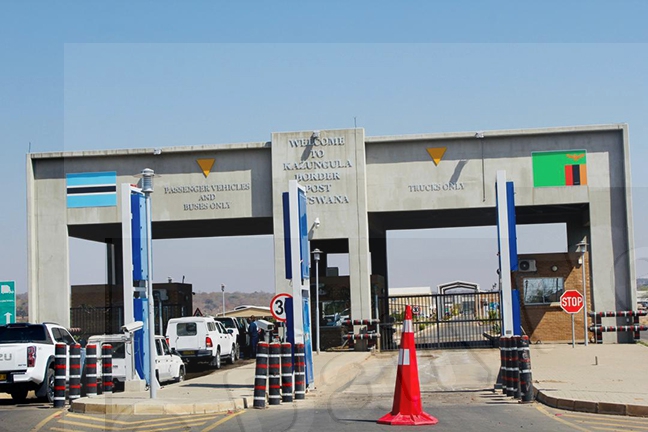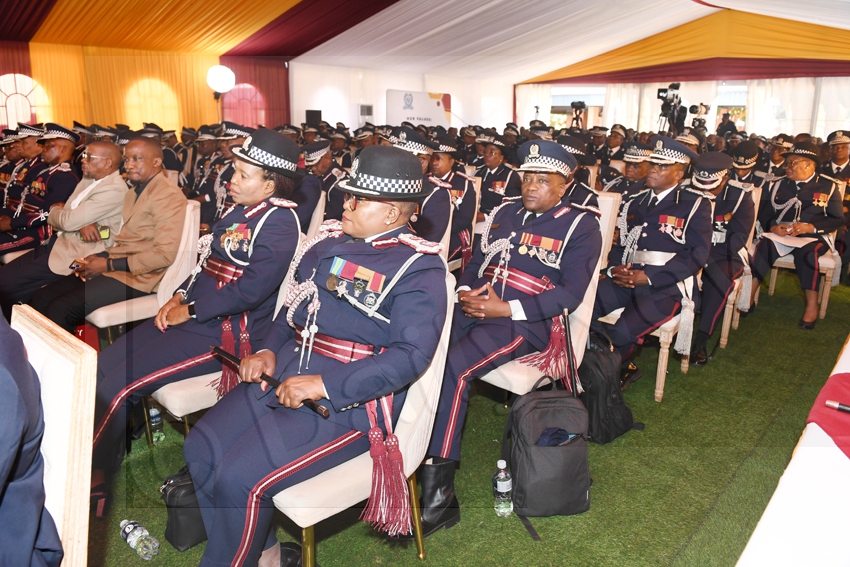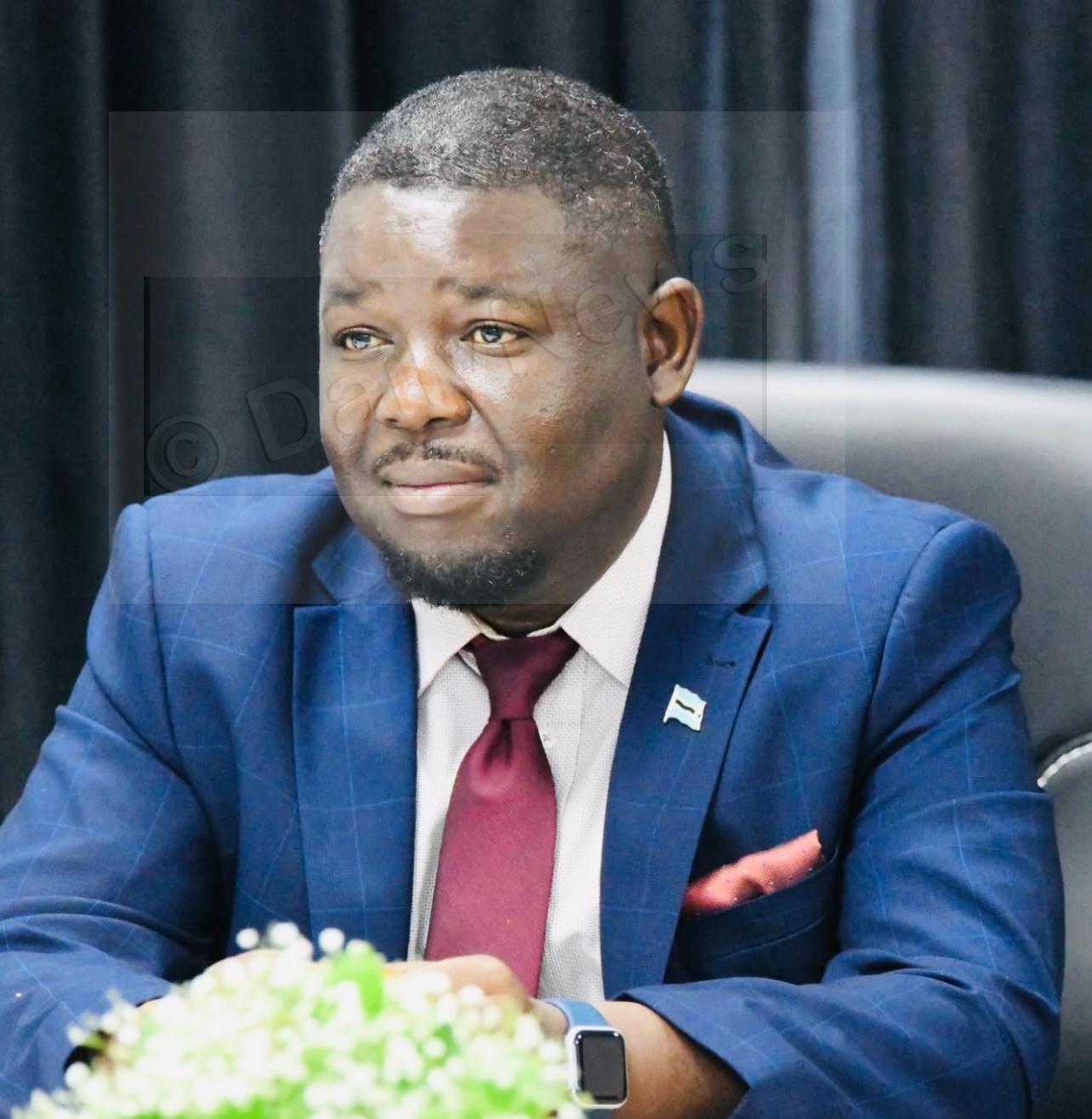Botswana takes part in revolutionary mission
22 Apr 2014
When dynamic, curious minds of scientists connect swiftly in a quest to prove something, more often than not, the result is revolutionary and life transforming.
A case in point is the Square Kilometer Array Project (SKA) - a mega space project that has brought together scientists from 20 countries including Botswana. The aim is to construct the world’s largest radio telescope in the world.
The telescope will be 50 times more sensitive than the existing radio telescope and be 10 000 times faster. Recently the Minister of Infrastructure, Science and Technology, Mr Johnnie Swartz attended a ministerial meeting of all SKA partner countries in South Africa.
He said in an interview that, “this is an important development we are going into as Botswana which is led by South Africa in the region.”
He said Botswana was selected to participate because of its ideal location in the southern hemisphere and environment, which could enable easier data collection from the universe. Other countries in the Africa region are Namibia, Uganda, Namibia, Madagascar, Kenya, Mauritius, Mozambique, and Zambia.
Minister Swartz said the project would be made up of thousands of receptors linked together across an area the size of the continent.
SKA Africa website states the telescope “will be powerful enough to sense radio waves from objects millions or even billions of light years away from earth (a light year is the distance light can travel in one year, at a velocity of 300 000 km/s).”
Minister Swartz said the scientific project would look back into the dark ages, to dissect time and examine how the universe was formed, how galaxies evolved, how stars were formed and possibly it would verify such theories as the Big Bang, and verify if there were other planets capable of supporting life besides earth amongst numerous other reasons for embarking on the project.
The minister who also recently attended the launch of the first ever and biggest precursor telescope in the world in South Africa, the MeerKAT said his team was ready to ensure Batswana benefited from the lucrative spill-off advantages that would come with participating in the project.
“Four sites have been identified specifically for this project, and these villages will benefit from infrastructural and communications technology developments, enhanced broadband connectivity, better internet access that come with the project namely; Kgalagadi, Ghanzi, Kweneng, and North West,” he said.
“Telescopes will be built in these very remote areas to avoid interference from industrial activities. Each site will house about 120 dishes by year 2020,” he said.
He gave the assurance there would be no displacement of people from their localities to give way for the telescopes, and that government would play its role, “We may offer to build the roads to such villages,” he said.
Quizzed on tangible project progress the minister said, “We are not sitting idle until 2022, in preparation for this huge project, we have erected an SKA precursor telescope at Kgale View, called the African Very Long Base Line Interferometry Network (AVN) which is meant to prepare the requisite engineering and scientific skills needed, in order to develop the necessary human capital.” And that human capital will come from across government and the private sector.
“We have already started to prepare for this, we have developed courses in line with astronomy, we are also up-skilling our personnel space science. We are expecting UB to play an even bigger role in terms of developing the necessary Human capital,” says Dr Kgakgamatso Moloi of University of Botswana (UB) Physics Department. UB, he said had already started to develop the necessary human capital to support the project and beyond,
He added that, “currently nine Batswana are on SKA scholarship outside to study Astronomy in order to support the project which is expected to run for over 50 years.”
He highlighted the immense benefits of space science to human life over the last three decade.
“GPS is an initiative of astronomy, weather forecasting, with the current development, we can now practice precision farming, we can forecast floods, disasters, fires and many others,” he said
Quizzed on the environmental threats of the potentially radioactive substances of the SKA, Dr Moloi, said the sites would be in very rural areas, and the technology was designed such that it would not impact on the environment.
“A lot of equipment that is radio-active will be kept in specialised housing units.”
Dr Moloi said Batswana should prepare to benefit from tourism related activities.
“SKA will boost tourism in those villages because these telescopes will be a very beautiful sight to behold.”
For her Part, deputy permanent secretary in the ministry Dr Seja Maphanyane, said the human capital was already available and only required to be channeled in the right direction.
“We have a lot of Information Communications and Technology (ICT) graduates on our national internship programme waiting list, they already have the basics, what we need is to refine their skills in ICT and channel them towards space science,” she said.
“In our National Development Planning, we need to find a way of incorporating Space Science and ensure we adequately plan for this.
The SKA development presents an opportunity for young people to explore other variations in courses.”
Further she said the project could be linked to our formative indigenous knowledge and check if such folklore tales of stars ‘bokopa-dilalelo’ and others could have meaning in modern day society.
She too was of the opinion the project would attract tourist to the sites.
But it is not just human resources that the country will need, says Dr Dimane Mpoeleng of UB’s Computer Science Department.
“The SKA project needs powerful computers to analyse data from the sky. “The key objective is to look for the origin of life. Botswana has been able to acquire the fastest computer in the SADC region for skills development in preparation for analysing collected data,” he said.
He opined Botswana’s participation in the project marked a very important technological development for the reason that it was the largest project in the world and there would be massive spill off advantages.
“Skills will be transferred hence between now and the next 20-30 years technologies will be developed, there will be no project that will come up and we won’t be ready for because we are pitching against the largest science project ever, it makes us technologically future proof,” he said.
And the amount of data that will be churned out by the telesecope for the benefit of the world would simply be mind boggling, he said.
“The data that will be generated in a day will be equivalent to data being played in an ipod for two million years. Its huge amount of data!”
And Batswana have reason to celebrate and embrace the technology, says permanent secretary in the Ministry of Communications Science and Technology, Dr Dikagiso Mokotedi .
“We are entering the unknown, and there will be benefits, we have an opportunity to participate in this unique project in the world and we believe a lot of young people will be excited.
As we prepare for this we are opening avenues for young people with interest in Space Science,” she said. ENDS
Source : BOPA
Author : Calviniah Kgautlhe
Location : GABORONE
Event : Interview
Date : 22 Apr 2014








